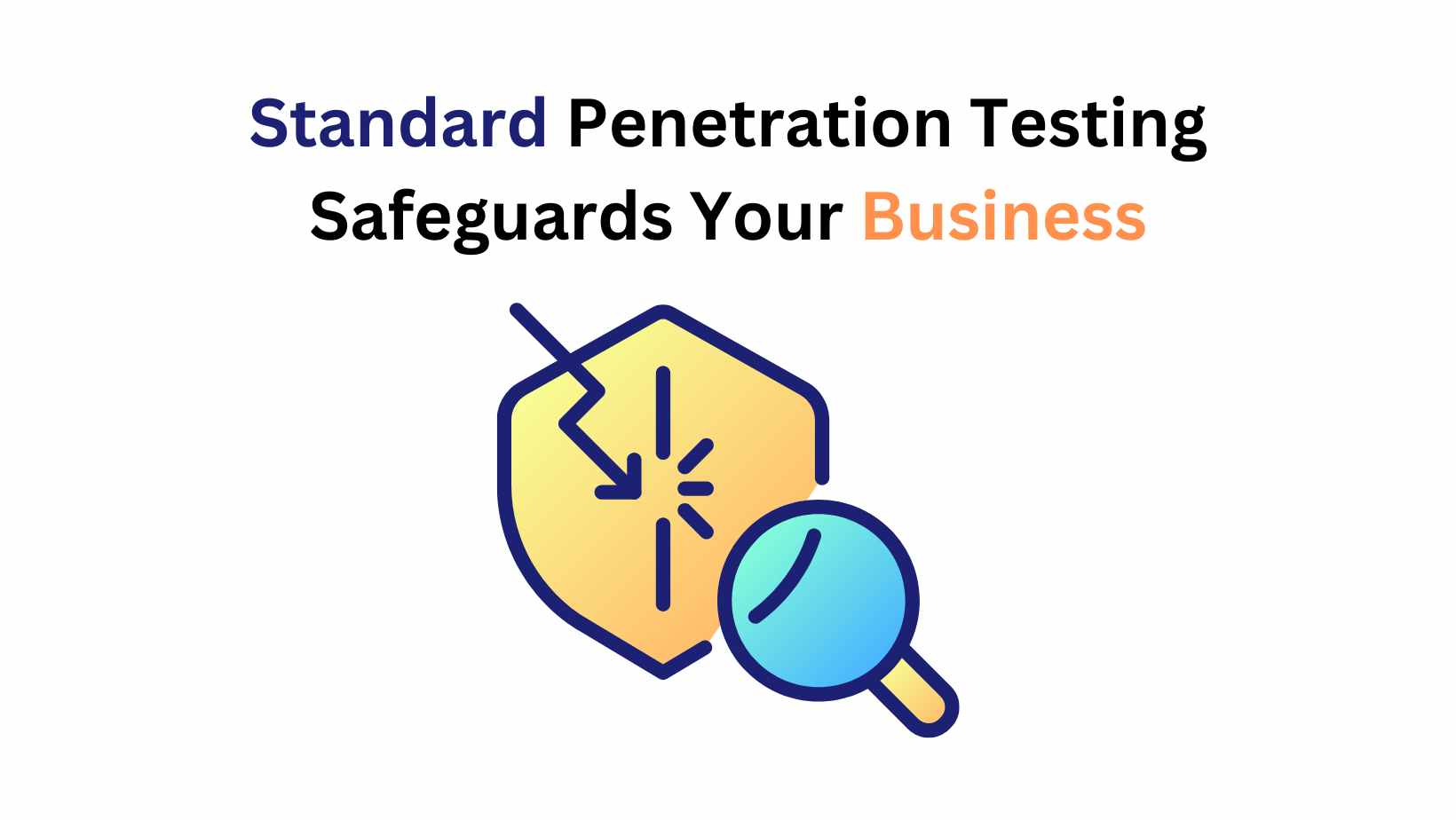Standard Penetration Testing (SPT)
Standard Penetration Testing, often referred to as “ethical hacking,” is a comprehensive cybersecurity assessment that simulates real-world cyberattacks to identify vulnerabilities within a business’s systems, applications, and networks. It involves a series of controlled attempts to exploit weaknesses in a similar manner to how malicious hackers would operate.
How Standard Penetration Testing Safeguards Your Business
Standard Penetration Testing, often referred to as Pen Testing, involves simulating cyberattacks on a business’s systems, networks, and applications to identify vulnerabilities that malicious actors could exploit. By emulating real-world hacking scenarios, businesses can uncover weak points in their cybersecurity defenses and take corrective actions. Here’s how standard penetration testing safeguards your business:
Identifying Vulnerabilities
Penetration testing allows cybersecurity experts to identify vulnerabilities in your systems before cybercriminals can exploit them. These vulnerabilities could be the result of outdated software, misconfigured settings, or other weaknesses in your IT infrastructure. By identifying these vulnerabilities, you can address them promptly, reducing the risk of a successful cyberattack.
Testing Defenses
Through penetration testing, your organization’s cybersecurity defenses are put to the test against various attack vectors. This process helps you assess the effectiveness of your security measures and identify areas that require improvement. It’s like a fire drill for your IT systems, helping you gauge your preparedness for real threats.
Safeguarding Customer Data
Businesses collect and store vast amounts of customer data, including personal information and payment details. A breach of this data can have severe legal, financial, and reputational consequences. Standard penetration testing helps ensure that customer data is adequately protected, enhancing trust and compliance with data protection regulations.
Preventing Financial Loss
A successful cyberattack can lead to significant financial losses, including downtime, recovery costs, and potential legal fees. By conducting regular penetration tests, you can proactively prevent potential attacks, saving your business from the financial strain associated with security breaches.
Preserving Reputation
A data breach not only impacts your bottom line but also damages your reputation. Customers are more likely to trust businesses that demonstrate a commitment to cybersecurity. By regularly conducting penetration tests, you show that you take security seriously, enhancing your brand’s reputation.
Meeting Regulatory Requirements
Many industries are subject to stringent cybersecurity regulations. Penetration testing helps you meet these requirements by identifying and addressing vulnerabilities that could lead to non-compliance. This is especially crucial for industries such as finance, healthcare, and e-commerce.
Enhancing Incident Response
In the unfortunate event of a cyberattack, having a well-defined incident response plan is essential. Penetration testing can reveal gaps in your incident response procedures, allowing you to refine your strategies and minimize the impact of potential breaches.
Improving Security Awareness
Penetration testing not only involves technical assessments but also helps raise security awareness among your employees. By highlighting the potential risks and consequences of cyber threats, your workforce becomes more vigilant and better equipped to identify and report suspicious activities.
Tailored Security Solutions
Every business has a unique IT landscape with specific vulnerabilities. Standard penetration testing provides insights into your organization’s specific weaknesses, enabling you to implement targeted security solutions that address your most critical areas of concern.
Staying Ahead of Hackers
Cybercriminals are constantly evolving their tactics to bypass security measures. Penetration testing keeps you one step ahead by identifying the latest attack vectors and vulnerabilities that attackers might exploit. This proactive approach ensures that your defenses are ready for emerging threats.
Boosting Business Continuity
Downtime resulting from cyberattacks can disrupt business operations and impact revenue. Regular penetration testing helps identify vulnerabilities that could lead to downtime and provides you with the information needed to fortify your systems, ensuring business continuity.
Importance of SPT for Businesses
The digital landscape is riddled with security breaches and data leaks. Businesses, regardless of their size, are prime targets for cybercriminals seeking financial gain or competitive advantage. SPT plays a pivotal role in helping businesses proactively identify and rectify vulnerabilities before they can be exploited by malicious actors.
Understanding the Penetration Testing Process

- Planning and Scoping: The first step involves defining the scope of the penetration test, including the systems and networks to be assessed.
- Reconnaissance: Ethical hackers gather information about the target to understand potential entry points.
- Vulnerability Analysis: This step involves scanning systems for vulnerabilities and weaknesses.
- Exploitation: Ethical hackers attempt to exploit identified vulnerabilities to gain unauthorized access.
- Post-Exploitation: Once access is gained, the testers assess the extent of the potential damage.
- Reporting: A detailed report is generated, outlining the vulnerabilities and recommended actions.
SPT vs. Ethical Hacking: Exploring the Differences
While both SPT and ethical hacking involve controlled attempts to breach security, SPT follows a more structured approach, focusing on systematic vulnerability assessment.
Common Misconceptions about Penetration Testing
- One-Time Fix: Penetration testing is an ongoing process, not a one-time solution.
- Unbreakable Systems: No system is completely immune to attacks; SPT helps uncover vulnerabilities.
Debunking Myths: What SPT Can’t Do
- Eliminate All Risks: While it reduces risks significantly, SPT can’t eliminate them.
- Replace Security Measures: SPT complements security measures but doesn’t replace them.
Conclusion
Standard Penetration Testing is a proactive approach to cybersecurity that empowers businesses to identify and address vulnerabilities before cybercriminals can exploit them. By embracing SPT as an integral part of their strategy, businesses can bolster their defenses and navigate the digital landscape with confidence.
FAQs
Can penetration testing prevent all cyberattacks?
While penetration testing significantly reduces the risk of cyberattacks, it cannot guarantee absolute prevention. Its goal is to identify and mitigate vulnerabilities, making it harder for attackers to exploit them.
Is penetration testing only necessary for large businesses?
No, businesses of all sizes can benefit from penetration testing. Small and medium-sized businesses are also vulnerable to cyber threats, and penetration testing helps them identify and address weaknesses in their defenses.
How long does a typical penetration testing process take?
The duration of penetration testing varies depending on the scope and complexity of the assessment. It can range from a few days to several weeks, with thorough testing requiring more time.
What qualifications should I look for in a penetration testing provider?
Look for providers with relevant certifications such as Certified Ethical Hacker (CEH) or Offensive Security Certified Professional (OSCP). Experience, industry reputation, and a comprehensive approach to testing are also essential criteria.










